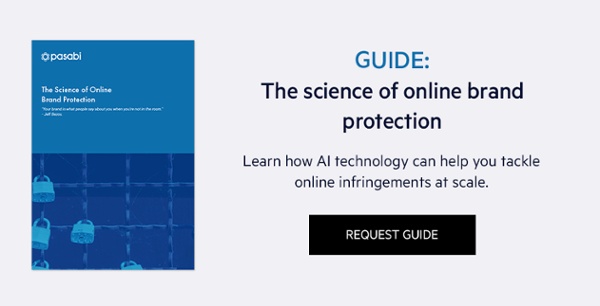If the current marriage of legal and technology has only scratched the surface of what could be possible, where are the potential new applications?
One area which has not been as fully explored is the pairing of technology with legal expertise; looking at utilising the best of what lawyers can do with the best of what technology can do to solve business problems. Could greater focus on this approach start to change the relationship between in-house lawyers and the more creative use and application of technology?
UK based legal tech company Pasabi is a great example of this approach and one of the few companies working in this new frontier of technology combined with law to solve fundamental business problems.
Interestingly, the development of their technology draws on insights from other disciplines, primarily behavioural science to solve problems being thrown up by our online interactions with content and products across digital channels. Pasabi applies algorithms to identify behavioural patterns of users across social media, marketplaces and e-commerce. Whilst the initial concept supported an application for the personalisation of online shopping experiences, a chance meeting with David Lindsay, Director of Technology at LVMH led to a rethink.
The technology is now used to identify ‘bad actors’ selling counterfeit products across online channels, including social media. Another key use case of the technology has been the ability to identify fake reviews, a key challenge for e-commerce sites and review platforms.
Unlike other brand protection services to identify counterfeit goods online, the Pasabi approach does not focus on the product but the contextual information about the seller. This can include personal identifiable information such as phone numbers, WhatsApp, websites, and email addresses, along with other social signals which can identify ‘bad actors’ and draw connections between individuals to identify groups acting together. This allows the identification of ‘hotspots’ of activity which company lawyers can then focus on with cease and desist letters.
The algorithms can also identify the visual location of photographs of fake goods. Counterfeiters may stage multiple photos shoots on the one day with the same backdrop or location. Identifying the same background can reveal a new network of connections in addition to focusing on sellers across online platforms. Pasabi is assisting the legal work of lawyers in a different way. It is solving a legal problem at the data scale, helping brand protection specialists to understand the true scale of the problem, and the insights they need to solve it.
Carolyn Jameson, Chief Legal and Policy Officer at online review platform Trustpilot, thinks this is what makes Pasabi so interesting.
“I was just really fascinated with what they're doing. It's not about using technology to solve legal operational problems, which I find less interesting anyhow. I thought it was really clever, and you could see how transformative it would be from a fundamental business perspective.”
The use of Pasabi was able to show patterns in fake reviews that were not discernible to the more traditional solutions on offer. This has provided really workable solutions for Trustpilot’s legal team, says Jameson.
“Pasabi was able to turn huge volumes of data into something that's actually really useful from a legal team perspective. Their user interface is really good, and is now something we're looking to use to flag suspicious activity and take action at scale. This should also have a deterrent effect, if people think they're going to get caught.
Being able to identify the scale of the issue through this use of technology has also allowed the legal team to be proactive in mitigating future risk and in discussions with regulators. We have been able to help them to identify where some of the challenge is coming from, as more become concerned with tackling fake reviews online.”
Being involved in this technology solution has been transformative for Carolyn Jameson as an in-house lawyer, particularly as part of a relatively new leadership team at Trustpilot:
“Preserving the integrity of content on the Trustpilot platform is one of our key company objectives and we’ve really gained momentum looking at innovative technology.”
If lawyers could get more comfortable with embracing more creative technology solutions, it would be a real positive for them in the business, allowing general counsel to move beyond many of the stereotypes about lawyers; if they can demonstrate that the marriage of law and technology can make a huge difference to fundamental business goals.
In conclusion, the legal industry needs to look more closely at the fundamental issues of how business practice is changing as a result of digitisation and move beyond technology solutions that focus on legal process. This is not to say that automation and use of technology to improve legal processes is a moot point – indeed it’s still an area that needs much focus and improvement. However, the challenge for legal technology may be the same as for lawyers and the legal industry in general, which is being more than just lawyers and becoming business partners.
A creative focus on technology and law working together to find ways to solve new business challenges can start to produce more interesting innovations. Pasabi is one such business that is creating a new and interesting category of legal technology where the focus is the application of law and AI technology to solve fundamental business problems in counterfeit products and fake reviews.


